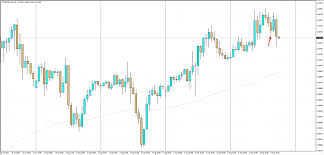Understanding UK Inflation: Trends and Impacts in 2023
Introduction to UK Inflation
UK inflation has become a critical topic over the past year as the nation faces rising living costs and economic challenges. Understanding inflation is crucial as it directly impacts consumer behaviour, wage growth, and economic stability. As of early 2023, the UK is dealing with significant inflationary pressures, making it essential for citizens to grasp the factors at play and the implications for their daily lives.
Current Trends in UK Inflation
As reported by the Office for National Statistics (ONS), as of August 2023, the UK inflation rate stands at approximately 6.8%, down from a peak of over 11% seen a year earlier. This decline is attributed to easing supply chain disruptions and the subsequent reduction in energy prices, particularly gas. However, food prices continue to climb sharply, with grocery inflation around 10%.
Key Drivers of Inflation
Several factors contribute to the persistence of inflation in the UK. Firstly, the economic recovery from the COVID-19 pandemic has led to increased demand that outpaces supply in various sectors. Secondly, labour market tightness exacerbates wage pressure, which in turn fuels further inflation. Additionally, geopolitical tensions, such as the ongoing effects of the war in Ukraine, contribute to increased energy prices and supply chain vulnerabilities.
Impact on Everyday Life
The consequences of inflation are felt across economic strata. For households, rising costs mean diminished purchasing power, leading many to cut back on discretionary spending. Furthermore, inflation affects savings, as the real value of money has eroded. The Bank of England’s policy adjustments, such as interest rate rises, are intended to counteract inflation but also have implications for mortgage rates and personal loans, potentially adding strain on borrowers.
Future Outlook
Looking ahead, economists suggest that inflation will likely remain above the Bank of England’s target of 2% for the next year, albeit expected to gradually decline through 2024. Key indicators will include global commodity prices and domestic economic resilience, including worker productivity. Policymakers continue to balance the need for inflation control against fostering economic growth, making it a critical period for UK financial health moving forward.
Conclusion
In summary, UK inflation in 2023 presents both challenges and opportunities for consumers and businesses. Staying informed about inflation trends is vital for effective financial planning and understanding potential economic shifts. As the nation navigates these uncertain waters, proactive measures by the government and the Bank of England will play a crucial role in steering the UK towards a stable economic environment.









